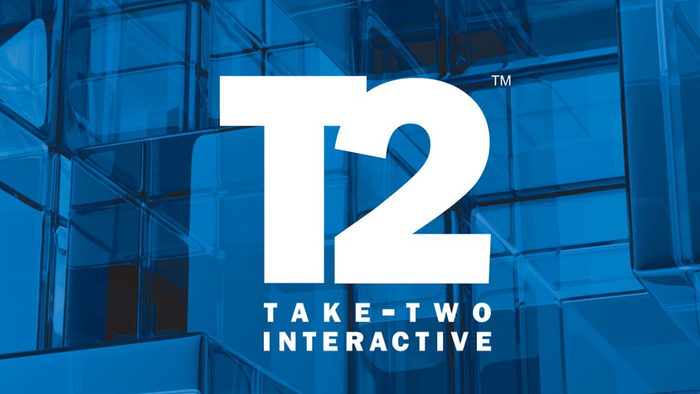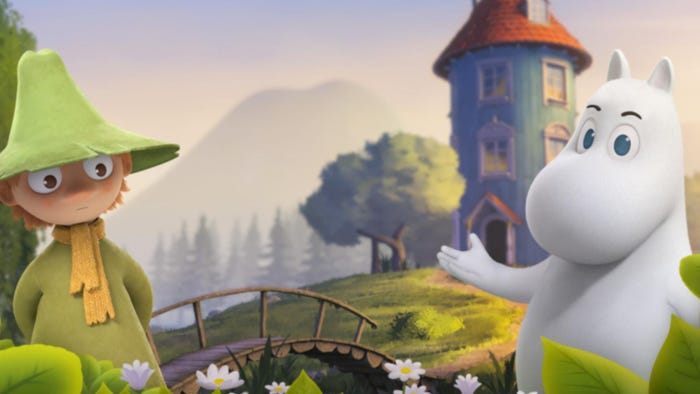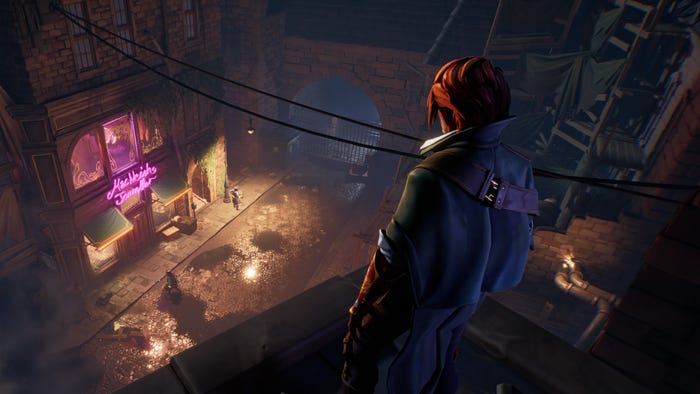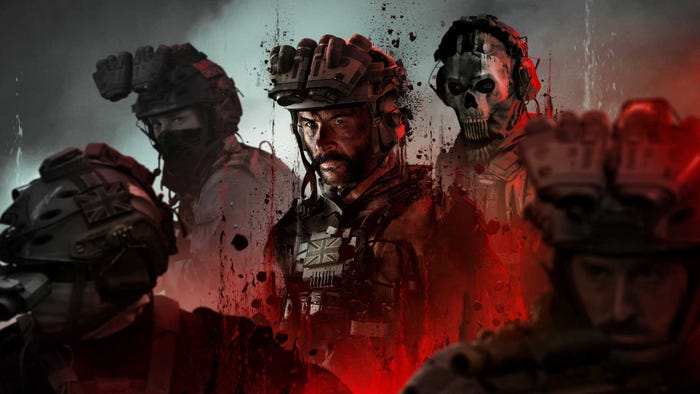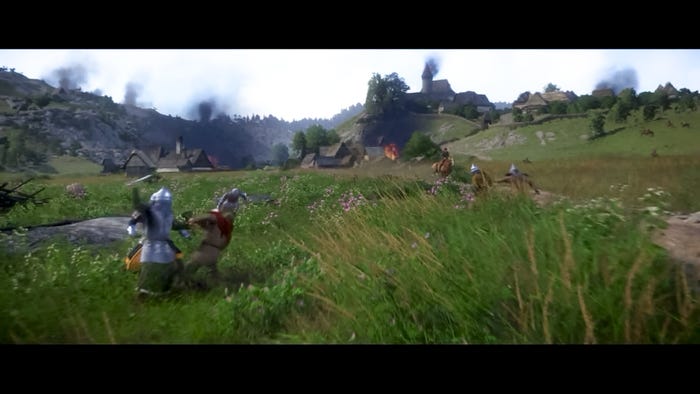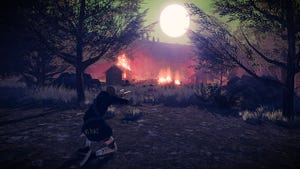
Featured Blog | This community-written post highlights the best of what the game industry has to offer. Read more like it on the Game Developer Blogs.
Do you want to use pre-existing music in your game, but are not sure how to do so? In light of what happened with Alan Wake, this guide will explain written licenses to use that music, and walk you through some common terms found in those documents.

Released in 2010 and 2012 to critical acclaim, Alan Wake by Remedy Entertainment has an excellent soundtrack which includes licensed music by David Bowie, Poets Of The Fall and others. Remedy announced over the weekend that the game was leaving Steam and Xbox Live because, as so often happens, the licenses they negotiated with the publishers of some of the songs are expiring. “War” by Poets Of The Fall is a particularly important part of the soundtrack—as are the other songs that play during the game’s episode endings. Grand Theft Auto is another game series that relies heavily on licensing pre-existing music, featuring a number of different radio stations representing particular genres in each game. A few of the licenses in San Andreas expired last year but unlike Alan Wake, the game was simply patched to remove those songs rather than taken off the market entirely. What do game developers need to know about situations like these, and how can they protect themselves? Read on to find my primer on music licensing and many of the things you should keep in mind when using pre-existing music in your game.
Why do I need a license to use a song in my game?
If you have a song in mind that would be a perfect fit for your game and want to include it in the final product like Remedy included “War” in Alan Wake, you’ll need to get permission from its copyright holder–usually in the form of a written license. This is because lyrics, musical composition, and sound recordings are copyrighted material and their owners have a legal right to stop you from distributing a song without their permission—which may stop you from selling your game entirely until the song is taken out of it. If you’ve integrated the song into a very important moment in the narrative, this would be especially burdensome on you because you would need to find another song which suits that exact part and conveys a similar enough message or emotion to the first song you wanted. Thankfully, that problem can be avoided by getting a license to use the music from its owner (also known as the “publisher” or “licensor”).
What terms should be in a contract for a music license?
Contracts can get very complex and densely-worded, which understandably makes some people uneasy about getting into their specifics. As I tell some of my clients, a good place to start when thinking about the details of a license or any other deal is with the classic “who, what, when, where, why, how” framework.
1. Who. While it may seem obvious that the contract is going to be between you and the owner of the music you want to use, there are other aspects of the “who” question to be specified. For example, will the license still be valid on its original terms if the owner of the music transfers the copyright to someone else? Will you still be able to use the song in your game if your studio is bought out? Are you allowed to sell the license to another party, as in the case of your game’s entire IP being purchased by a publisher?
2. What. Your license should spell out exactly what songs or aspects of the songs you seek to use. For example, you might not need to use the original recording of “War”—instead you want to do a cover version of it yourself. In that case, you may want a license for the composition only. If you want to use part of a song as opposed to the whole thing, you should specify that as well.
3. When. How long will you be allowed to use the music in your game? This is known as the “term” of the license. It can last any number of months or years, and possibly include an option to renew or renegotiate the license after that period expires.
4. Where. In what real-world territories are you allowed to use the music in your game? With digital distribution being a huge source of game sales, it’s very important to think internationally. Does the license let you use the song in your game worldwide, or only in certain countries?
5. How. Your license should specify exactly how the song will be used. This is important because often, the context will have an impact on the licensor’s asking price. The more prominently the song will be featured, the more money they may want in exchange for the license. For example, will the song be synchronized with the opening cutscene, or with the end credits? Will a certain segment of it loop during a specific combat encounter or other part of the game? And to what extent are you required to market and promote the game so that the licensor can receive revenue and recognition for their song?
This brings us to the “why”. The text of your licensing contract may not necessarily reflect your reasons for wanting to use that particular song, but knowing exactly why you want it is useful in case you can’t work out a deal with its publisher and need to come up with a contingency plan. Do you, like Remedy, feel that the song is absolutely integral to the game so that almost no other song will work? Or do you plan to use it to punctuate a particular moment or set a mood—in which case another song or a completely original composition would meet that goal? Do you just want a diverse soundtrack like in GTA, so that a similar song from that genre would work just as well? Whereas Rockstar and Take-Two chose to simply patch out the songs whose licenses had expired, Remedy removed Alan Wake from digital storefronts altogether because they consider the music they licensed to be such an essential part of the game that simply taking it out would have a significant negative impact on the experience. As such, they are hoping to negotiate new licenses for those specific songs and start selling the game again.
6. Expiration. Your license should specify exactly what happens when the term expires. As seen above, there are a number of possibilities. Is there an option to renegotiate the contract? And if not, how much time do you have to remove the song from the game?
7. Exclusivity vs Non-exclusivity. Will you be the only one who is allowed to use that song in a game? Would a film studio be allowed to use it in their film? The importance of this will depend on whether you want to be the only one to use that song in media (which could create a greater emotional impact when a player hears it in your game because it will be uncommon) and how much you are willing to pay for that exclusivity. Licensors will typically charge you more for that because it means that you would be the only source of licensing revenue for them, at least in that particular medium.
8. And of course, compensation. I put this last on the list because all of the above factors and more will impact what kind of payment(s) the licensor asks for. The more this contract is written in your favor, the more money that an owner of a song is going to want in exchange. Payment is another term in a licensing deal that might seem cut-and-dry on the surface, but it needs to be laid out in the text very, very specifically. If you’re giving the owner a flat dollar amount in exchange for this license, when will the payment be made, in how many installments, and in what way? Does the licensor get a certain percentage of net or gross proceeds from game sales, or from all revenue associated with the game including merchandising—a “360 deal”? Does the percentage of the royalty decrease over time in a “sunset” or “step-down” structure?
Conclusion
This list is intended as a starting point to get you thinking about how you’ll use licensed music in your game, and how you’ll get permission to do so. Although I’ve covered a lot of the common aspects of such licenses here, this list isn’t exhaustive and there will be many other terms in any music licensing contract, as well as unique factors in your own situation that will affect your negotiation process. You might even say “it’s not a lake, it’s an ocean”. So as always, the foregoing informational material is not legal advice and you should consult a lawyer before negotiating or signing a license or any other contract.
Read more about:
Featured BlogsAbout the Author(s)
You May Also Like


